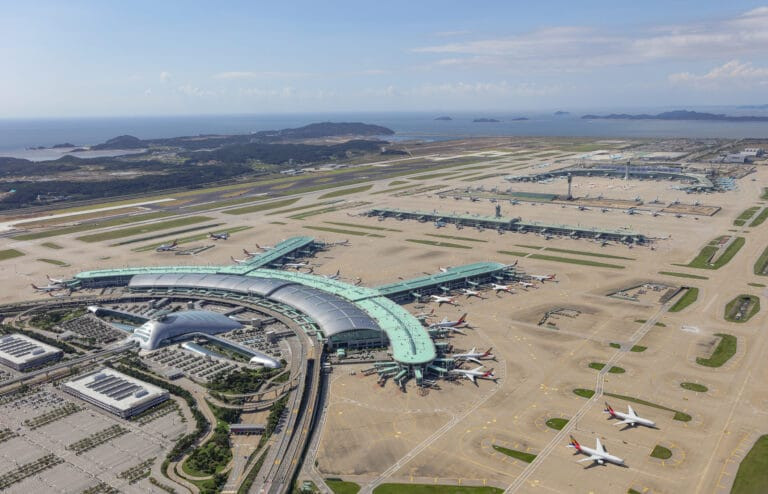As shifting geopolitics and evolving trade policies reshape the global logistics map, Incheon International Airport is doubling down on its ambitions to become a dominant hub in the booming Europe–Asia air cargo corridor. Strategically located at the crossroads of Northeast Asia, Incheon is ramping up infrastructure, forging international partnerships, and tailoring incentives to attract carriers amid intensifying demand for high-value, time-sensitive shipments.
“Incheon Airport holds a 24 percent share of total volume in the Asia–North America corridor and 18 percent in Asia–Europe,” Hoon Lim, Deputy Director at Incheon International Airport Corporation, said. “While we expect short-term volatility in trans-Pacific trade, the Asia–Europe corridor is forecast to grow steadily. Our mid-term strategy is to expand capacity to Europe by attracting a wider variety of cargo airlines.”
Free trade at its core
The airport is aligning its development strategy with South Korea’s ambitious free trade agenda. Currently, South Korea has signed FTAs with 59 countries worldwide, including the EU in December 2015, the UK in January 2021, and Turkey in May 2013.
“It is expected that air cargo such as semiconductors, automotive parts, machinery, and fresh food will increase between South Korea and major European countries. This will help airlines operating at Incheon Airport attract additional cargo in the Asia-Europe corridor based on this demand,” Lim expressed.
To match this growth, three new warehouses totalling 125,000 sq m are being built in the Free Trade Zone adjacent to the airport.
“With increasing uncertainty, there is a growing need for manufacturing companies and logistics companies to store inventory closer to demand areas,” Lim outlined. “These facilities will enable Incheon Airport to enhance its Regional Distribution Center functions, allowing inventory to be stored in the airport’s Free Trade Zone and enabling delivery to major Asian regions within eight hours.”
Incentives drive engagement
To lure European carriers and strengthen Asia–Europe air links, Incheon Airport has deployed aggressive incentive programmes. Existing operators such as Lufthansa Cargo, Cargolux, Aerologic, and DHL benefit from rewards tied to cargo volume increases, while new routes or airline entries receive two-year landing fee exemptions and marketing support.
“These incentives are already paying off,” Lim said. “Three European carriers—including Cargolux—will either launch new operations or increase flights to Incheon this year.”
Incheon’s outreach isn’t limited to airlines. The airport is actively pursuing long-term partnerships with major European cargo hubs. It formed the ‘Leading Airport Alliance’ with Paris Charles de Gaulle and Amsterdam Schiphol in 2017, and most recently signed a cargo cooperation agreement with Vienna Airport in 2024. Joint staff exchanges and project planning are underway, and new collaborations with airports in Belgium are in the pipeline.
“These partnerships enable integrated cargo flows and operational best practice-sharing, which help airlines enhance their competitiveness across the Europe–Asia lane,” said Lim.
Preparing for a the long-term
Incheon’s full potential as a Europe–Asia hub hinges on one factor: access to Russian airspace. With flights rerouted, travel times to Northern Europe have increased by up to four hours, impacting efficiency. However, Incheon is preparing for overflights to resume when the Russia–Ukraine conflict ends.
“Incheon’s strongest competitive advantage as a hub between Europe and Asia lies in its geographical location as the northernmost cargo hub in Asia,” Lim highlighted. “When Russian airspace is accessible again, flights between Incheon and Europe will become more competitive, as it was previously possible to operate to Northern Europe (such as Finland) within nine to 10 hours, but now the journey takes 13 to14 hours. Incheon Airport is preparing by attracting cargo and passenger flights from various European airlines to be ready.”
Ahead of this, Incheon is also engaging directly with forwarders and logistics players to build the next stage of its operations.
“Considering the high demand for transporting pharmaceuticals, food, and automotive parts in the Asia-Europe corridor, Incheon is helping 26 airlines and logistics companies acquire certifications in three key areas— IATA CEIV Pharma, Fresh, and Lithium Battery. These efforts are expected to provide more cargo transport opportunities for logistics companies using Incheon Airport,” Lim concluded.





